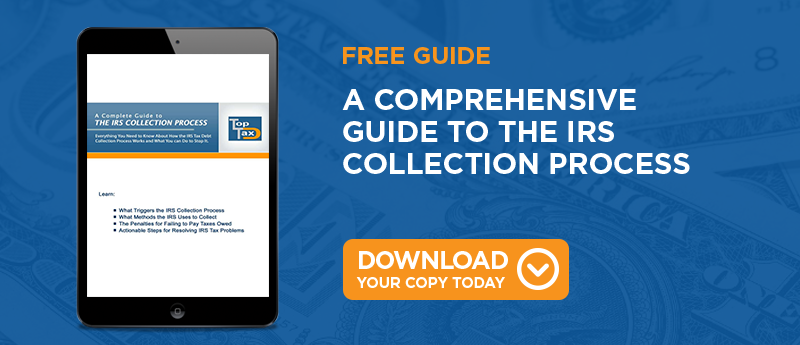
If you have a tax debt with the IRS that is at least ten years old, you might think that the agency doesn't have the ability to pursue you for collection. While most taxpayers receive a reprieve on their tax debt after ten years, in some cases the IRS still has the ability to collect on an old debt. It's important for taxpayers to find out if their accounts are exempt from the ten-year rule so that they can prepare themselves if the IRS decides to pursue collection.
Why the 10-Year Statute May Not Apply to You
In a few situations, the IRS does not have to abide by the typical ten-year statute of limitations on tax debts. These special circumstances typically have to do with other tax relief provisions that taxpayers may try to take before the period ends. For example, if an individual files for an offer in compromise, which allows them to pay a portion of their tax debt without having to pay it all, then he or she is not entitled to have their debt removed after the ten-year period ends.
Other situations that disqualify taxpayers from protection under the statute include those who file for bankruptcy protection from the IRS and those who sign a waiver form as part of enrollment in an installment plan. The IRS also does not have to follow the ten-year statute if the taxpayer is not living in the United States at the time the period ends or if the taxpayer is currently pursuing or receiving legal action from the agency.
Why Taxpayers Should Try to Settle Their Debt Quickly
If the individual's tax debt is exempt from protection under the statute, the IRS will have additional time to pursue debt collection. The longer that the account is active, the more tools the IRS will have at its disposal to clear up the account. The agency may decide to use such tactics as imposing a tax levy or a tax lien to lay claim to the taxpayer's assets. Individuals who work for an employer may have their wages garnished for a period of time to help satisfy their back tax debt. Since the IRS does not need to obtain consent from the taxpayer before beginning these types of tactics, it is in a taxpayer's best interest to try to settle the account on their own before the agency takes action.
While you might not be guaranteed protection from back tax debt collection under the ten-year statute, you can make sure that you're prepared in case the IRS continues to pursue you for payment of your debt. Finding out which circumstances are not covered by the statute of limitations will give you a head start in arranging your finances to cover your debt.




